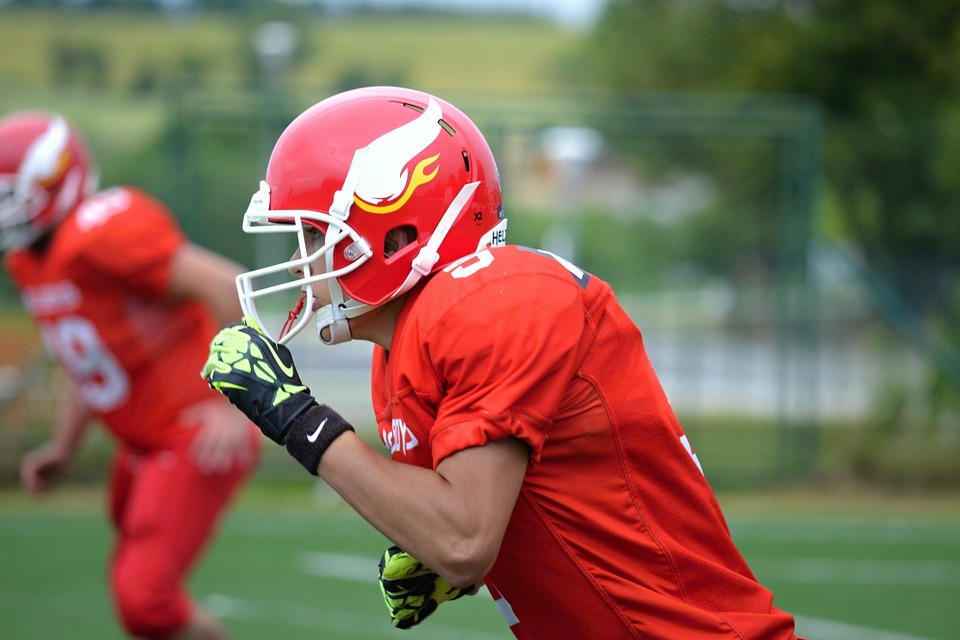
Over the past decades we have learned much more in regard to the effects of brain injuries in sports. These head injuries can come in a wide variety of ways and can happen in multiple different sports. When discussing this topic, it is logical to start with football as the main contributor to sports related head injuries.
Football is the nations most popular sport and it is also noted for being the most physically demanding sport as well. Parents have been concerned of the possibility of head injuries when their child plays contact football, yet it is still the most popular sport among young males. The Brain Injury Research Institute found that 20 percent of football players in high school will suffer a traumatic brain injury. And sixty to seventy percent of those head injuries are suffered during practice. With that said, parents should be concerned about the impact of brain injuries when their child is playing football, but many times the other many ways children can get a head injury are often overlooked.
Other Sports We Should Focus on Other then Football
Sports of all types present some type of risk to children suffering a brain injury. Take cycling for instance, cycling accounts for nearly double the amount of head injuries compared to football for children between the ages of five to fourteen.
Regardless of whether or not you have legal representation, it makes sense to seek specialists for common injuries. Some sports are more likely to initiate the need for a hand and wrist injury doctor, others will produce injuries around the feet and legs. In ice hockey, all these components of the body could be affected owing to the predominance of “checking”. Also, owing to the hardness of the ice, checking, and fast pucks, helmets as well as mouth guards are necessary. For some sports, you need options for almost any level of injury.
After that, you have baseball and softball, basketball, skateboarding and winter sports. Any of these sports pose a threat to children suffering a head injury. Many times these children have been raised on sayings like “walk it off” or “power through it” from their coaches and parents alike. These children are being put in a position where they believe they must “play through the pain” and it can often lead to long term health problems down the line. When someone causes serious head trauma to a child by ignoring the signs of a head injury or pushing them to keep playing it might be wise to contact a traumatic brain injury lawyer to see your options.
Types of Traumatic Brain Injuries
First, let’s discuss what a traumatic brain injury is by definition. It is said that a traumatic brain injury means that some type of form of dysfunction has been rendered by an impact. These head injuries can range from mild to very serious.
Concussions are the result of the brain hitting against the dense walls of your skull. Concussions are a type of brain injury usually described in the “mild” category. But that doesn’t mean the head injury should be a no concern to parents. There is the situation that a concussion will have short term effects and not be long lasting, but multiple small concussions over time can add up and absolutely effect a child’s long term health.
Hematoma can lead to permanent brain damage. It occurs when pooling or clotting of blood occurs outside of a blood vessel
Edema is swelling, it can occur outside the skull in the skin tissue. Or it can occur inside the skull, which is the most dangerous as it starts to push on the brain.
A hemorrhage is when uncontrolled bleeding occurs, this is very serious when it is happening to your head or brain.
Diffuse axonal injury is when the injury damages the brain cells. This injury is not always visible but it can lead to worse things such as swelling and brain damage.
Lastly, skull fractures can be a very serious injury. Your skull is the only bone in your body that does not have bone marrow, this makes it very strong but also very vulnerable to another possible blow to your head because it won’t be able to absorb the impact if you already have a fracture. This can lead to many complications down the road.
Signs your Child has s Sports Related Head Injury
There are many signs parents and coaches alike should be looking for when children are playing sports, especially contact sports. Some of these signs are:
- Loss of consciousness
- Balance or coordination problems
- Vomiting
- Inability to focus the eyes
- Disorientation
- Inability to concentrate
- Seizures
- Loss of muscle control
- Changes in mood
- Severe headache
- Memory loss
- Leaking of clear fluid from ears or nose.
If your child shows any of these signs you should immediately contact your doctor or get them medical attention. If not treated properly, head injuries can lead to long term health effects on your child’s brain. Also, if you believe your child’s head injury was caused by the negligence of someone else, you should contact a traumatic brain injury lawyer to see what your options might be. Parents should take the possibility of a head injury very seriously, and should always look for the signs and symptoms of a head injury when their children are playing sports.
Leave a Reply
You must be logged in to post a comment.